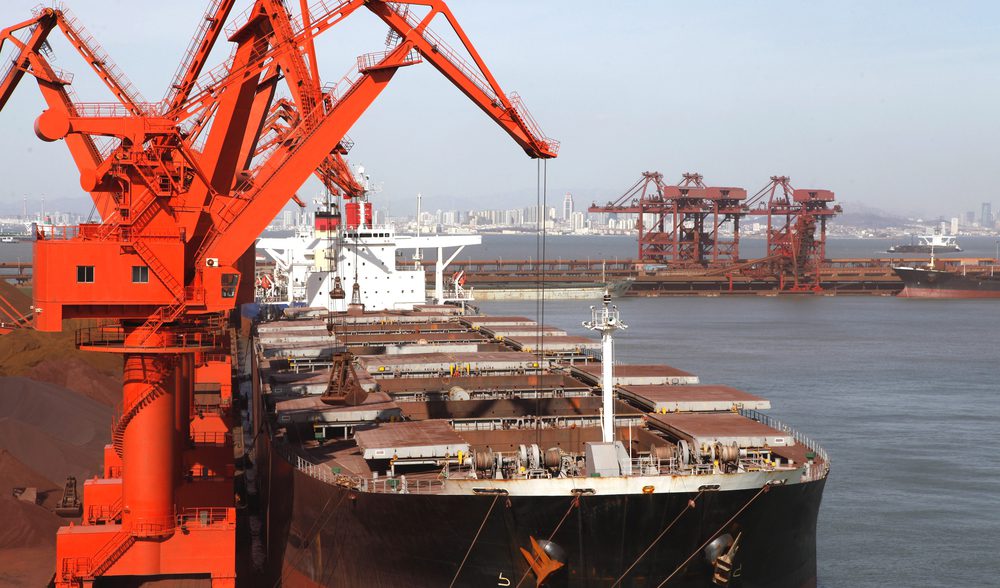By Naomi Christie
(Bloomberg) — Iron ore and shipping costs plunged to the lowest in five years amid signs China’s slowing economic growth and a glut of the commodity are sapping seaborne trade.
China imported 67.4 million tons of iron ore in November, down 15 percent from October, according to customs data. This was the first November decline in China’s iron ore imports since 1998. The only other time November imports fell since records began was in 1996.
China’s economic growth will slow to 7 percent next year from 7.4 percent in 2014, according to economist forecasts in a Bloomberg survey. The rate to ship the commodity on a Capesize vessel to Qingdao, China from Tubarao, Brazil fell 4.4 percent to $12.47 a ton today, the lowest since Jan. 9, 2009, data from the Baltic Exchange in London show. The Latin American country’s shipments fell 18 percent in November to 26 million tons, the lowest for the time of year since 2010, government data show.
“December might be even more disappointing than November,” Alex Gray, chief executive officer of Clarkson Securities Ltd., a unit of the world’s biggest shipbroker, said by phone on Dec. 15, citing his firm’s initial discussions with port agents in Brazil. “The absence of Brazilian volume in the scale we’d anticipated has been the key cause of the Capesize drop.”
Brazil is the second largest exporter of iron ore in the world after Australia. Such cargoes have a greater impact on freight rates, as the country is three-times further from China than Australia, the biggest shipper of the commodity. It takes 35 days to ship ore from Brazil to China, according to Axsmarine.com.
Baltic Dry
Iron ore delivered to China fell 0.8 percent to $68.05 a ton today, the lowest since June 3, 2009, according to Metal Bulletin data. The market needs to absorb a surplus of about 110 million tons next year, almost double the 60 million tons in 2014, Goldman Sachs Group Inc. estimated in October.
The Baltic Dry Index, a measure of dry shipping costs, had its longest declining streak in 18 months today, falling 1.3 percent to 827 points on the Baltic Exchange.
China’s GDP growth in 2015 would be the lowest in 25 years, and was revised down from 7.3 percent growth forecast in March, according to Bloomberg surveys.
“Whatever happens in China has a profound impact on the economics of steel production and industrial activity globally,” Paul Gait, a London-based research analyst at Sanford C. Bernstein & Co., said by phone on Dec. 16.
Copyright 2014 Bloomberg.

 Join The Club
Join The Club











